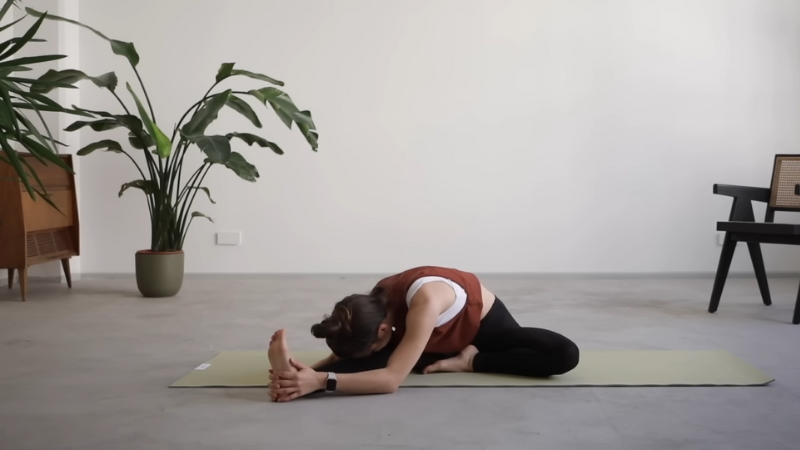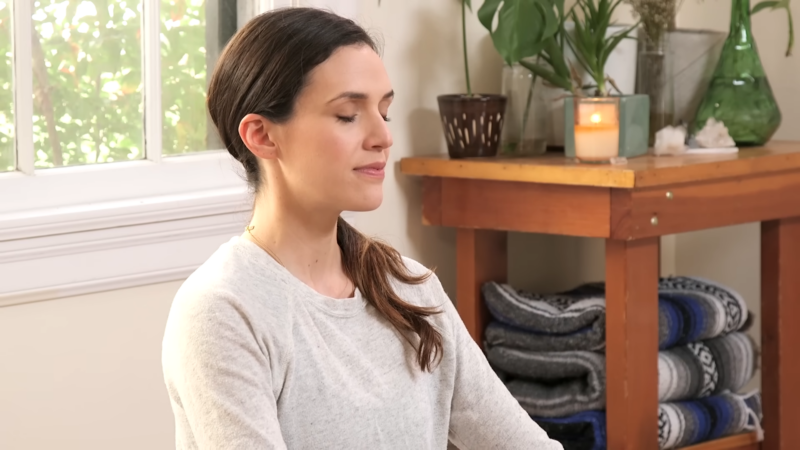Life has a way of piling on stress. One minute, everything feels under control, and the next, it’s like juggling a hundred thoughts at once. Work, family, responsibilities—it all adds up.
And let’s be real, ignoring stress never works. Eventually, it catches up, leaving the mind foggy and the body tense.
The good news? Finding relief doesn’t have to mean expensive retreats, complex routines, or major lifestyle changes. Small, simple actions can work wonders in resetting the mind and boosting well-being. I’ve tested so many methods over the years, and these are the ones that truly help.
Let’s get into it.
1. Move Your Body (Without the Pressure)

Exercise gets recommended all the time, and for good reason. But when stress levels are through the roof, the last thing anyone wants to hear is, “Go work out.” The idea of pushing through a high-intensity session or dragging yourself to the gym can feel overwhelming.
Luckily, movement doesn’t have to be structured or intense. It just needs to exist. A few options that don’t feel like a chore:
- A slow morning stretch—nothing fancy, just reaching and breathing.
- A quick walk outside, even if it’s just to the end of the street and back.
- Putting on a favorite song and moving around the house (yes, even if it’s just swaying).
The body holds onto tension, and movement helps release it. Plus, physical activity triggers endorphins—the brain’s natural stress relief. So even if it’s just a few minutes, it’s worth it.
2. Get Your Hands Dirty
There’s something incredibly therapeutic about working with your hands. Whether it’s gardening, painting, knitting, or baking, engaging in a hands-on activity brings a unique kind of calm.
Gardening, in particular, has been proven to lower stress levels. Digging into the soil, tending to plants, and watching things grow to create a grounding effect.
If space allows, starting a small garden or tending to potted plants can be surprisingly soothing. And if that’s not an option, even something like kneading dough, molding clay, or scribbling on paper can have the same effect.
For those with a love for water features, creating a peaceful outdoor space with a small pond can be incredibly relaxing. A pond specialist can help bring that vision to life, adding an extra layer of tranquility to your surroundings.
3. Deep Breaths, No Fancy Techniques Needed
Breathing techniques get complicated fast. There are countless methods—box breathing, alternate nostril breathing, diaphragmatic breathing—it’s enough to make anyone give up before even starting. But here’s the thing: The body doesn’t need complexity, just oxygen.
Try this:
- Inhale deeply through the nose for four seconds.
- Hold the breath for four.
- Slowly exhale through the mouth for six.
- Repeat until a sense of calm settles in.
The extended exhale is key. It signals the nervous system to shift from stress mode into relaxation. It’s a small action with a massive impact.
4. Write It Out (Messy Is Fine)
Journaling doesn’t have to mean writing a perfect, insightful entry every day. In fact, the less structured, the better. The goal isn’t to create something polished—it’s to unload thoughts onto paper so they don’t take up space in the brain.
Some simple prompts to get started:
- What’s taking up mental space today?
- What’s something that made you smile recently?
- If the mind feels scattered, jot down a list of everything on it—no need to organize.
There’s something powerful about seeing thoughts outside of the mind. It brings clarity, even if nothing is immediately “solved.”
5. Do Nothing for Five Minutes

Sounds too simple, right? But that’s exactly why it works. The mind is constantly processing information—social media, news, emails, conversations. It’s rare to just be.
Try this experiment:
- Find a comfortable spot.
- Put away the phone, turn off music, and pause all distractions.
- Sit for five minutes. No multitasking, no planning, no problem-solving.
At first, it might feel uncomfortable, even boring. But after a while, the silence becomes oddly refreshing. The brain needs space to breathe, just like the body does.
6. Make Sleep Non-Negotiable
Getting a full night of rest changes everything. When sleep is lacking, patience runs thin, emotions feel heightened, and even small tasks seem overwhelming. But when the body is well-rested, stress feels easier to manage.
A few sleep hacks that make a difference:
- Ditch screens before bed – Blue light messes with melatonin, making it harder to fall asleep. Reading a book or listening to calming sounds is a better alternative.
- Keep the room cool and dark – Temperature and light levels impact sleep quality more than most people realize.
- Stick to a routine – Going to bed at the same time each night helps train the body to wind down naturally.
And if sleep still doesn’t come easily? Lying down in a dark room, focusing on breathing, and resting—even without actual sleep—still has benefits.
7. Connect with Someone (Even Briefly)
Improve your mental health by socializing and hanging with your #friends pic.twitter.com/gvKU7Qr1Z5
— onedopekids (@onedopekids) September 4, 2024
Humans aren’t meant to function in isolation. Even small moments of connection—sending a text, chatting with a barista, calling a friend—make a huge difference in mental well-being.
Not feeling social? That’s okay, too. Animals provide the same comfort. Sitting with a pet, watching them play, or simply petting their fur releases oxytocin, the hormone responsible for feelings of bonding and relaxation.
The key is allowing moments of warmth, even on days when socializing feels like too much.
8. Change the Scenery
Ever notice how stress feels heavier when stuck in the same space for too long? A shift in the environment helps break up mental patterns.
A few easy ways to refresh the surroundings:
- Step outside for a few deep breaths, even if it’s just on a balcony.
- Rearrange a desk or add something small, like a new plant or lamp.
- Visit a different coffee shop, park, or quiet spot.
Even minor changes in surroundings create a mental reset.
9. Laugh (Even If You Don’t Feel Like It)
@emilieleyes.hypnosis Replying to @gistellpowell brain hack to make yourself #laugh !!! #laughteryoga #mentalhealth #brainhack #laughtertherapy #serotonin #serotoninboost #depressionrelief #moodboost #energyboost #morningroutine ♬ Serotonin – girl in red
Laughter does something wild to the brain—it instantly releases tension. Even fake laughter can have a positive effect.
Ways to bring more laughter into the day:
- Watch a funny video or stand-up clip.
- Look through old photos or messages from friends that made you laugh.
- Recall an awkward or ridiculous moment from the past (everyone has a few).
The beauty of laughter is that it doesn’t have to be forced. Sometimes, it just needs a little encouragement.
10. Soothe Your Senses
View this post on Instagram
Stress isn’t just mental—it’s physical. Engaging the senses helps the body relax just as much as the mind.
A few ideas:
- Scent: Light a candle, use essential oils, or brew a fragrant tea.
- Touch: Wrap up in a soft blanket, take a warm bath, or put on cozy socks.
- Sound: Play calming music, listen to nature sounds, or enjoy silence.
Focusing on small sensory pleasures brings an instant sense of calm.
Final Thoughts
Stress doesn’t disappear overnight, but small, mindful actions make a difference. Movement, stillness, laughter, connection—each one adds up. No need for perfection, just little moments of peace throughout the day.
Feeling valued at work also contributes to your sense of well-being. Which one will you try first?

Hey, I’m Derek Vaughn. I love exploring how tech, business, and productivity come together to shape the way we work. At PulseBlueprint, I write about tools, trends, and strategies that actually make a difference—no fluff, just real-world insights.







